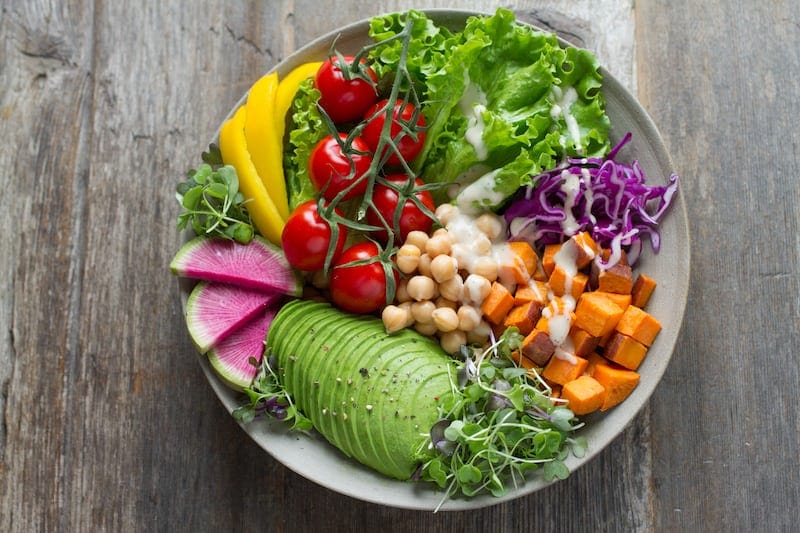Vegan
Definition
A vegan lifestyle, also called veganism, is a sub-form of vegetarianism. Here, only products that involve the killing or suffering of an animal are avoided. As a vegan, you do not eat any products that come from animals. It is a purely plant-based diet. However, this partly goes beyond food and includes abstaining from things like genuine leather or wool, which also involve the suffering of animals.


Why live vegan?
Vegans have several reasons for their lifestyle. First and foremost is the ethical background of reducing animal suffering. Many criticise current animal husbandry and the failure to respect animal rights. By not buying these products, they are not supporting these companies financially. For many, it is a protest and is meant to draw attention to the abuses. A vegan diet also reduces one’s own emissions, so it is good for the climate. Studies show that this is especially true for vegans, even more so than for vegetarians.
In addition, a vegan diet can also be good for your health. Intolerances to animal products are widespread among the population. Some people therefore have to eat a vegan diet. In general, plant-based products are also better for one’s health.
For some parts of the world, veganism can also have religious or cultural reasons. Animal products are partially or completely excluded from the diet. This can also be a reason to go vegan in certain cultures. In most cases, however, this can be found more among vegetarians, as not all animal products are always excluded.
Making up for missing substances in the body
While this one-sided diet has many advantages, it also has some disadvantages. With the exclusion of animal products, the body lacks important nutrients. As humans, we are theoretically “omnivores”, which is what our bodies are built on. If important substances are missing, this can lead to deficiency symptoms. This type of diet should therefore not only refer to the omission of products, but should supplement them in other ways, without animal products.
Already with vegetarianism, these mainly concern proteins, vitamin B12, zinc and iron. With vegans, this can become even more apparent, especially with iodine. This is only absorbed in very small quantities in a vegan diet, which is why it can be a major problem area. With the right supplements, however, the iodine balance can be kept at a certain level and diseases can be avoided.
